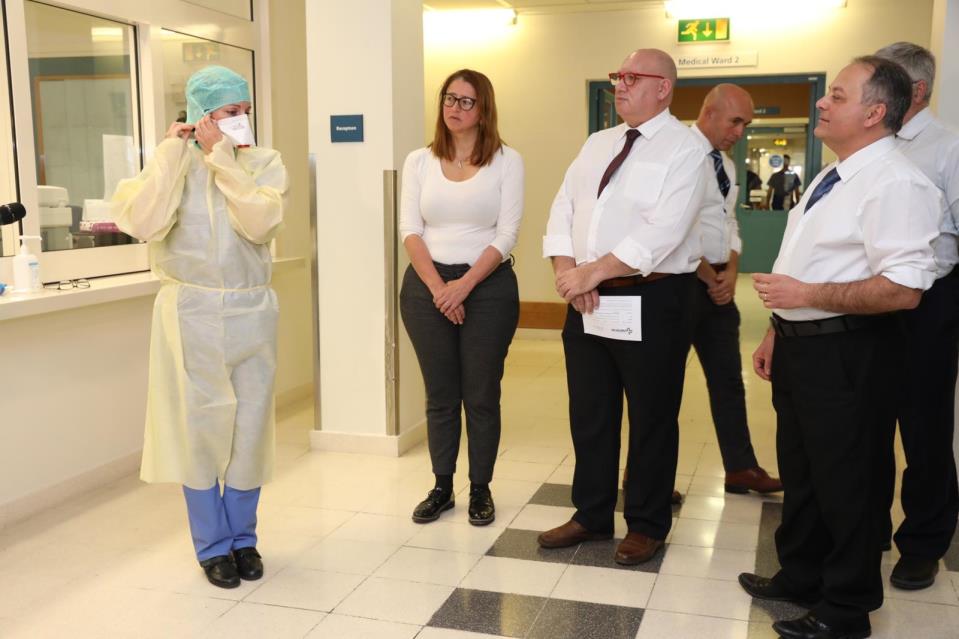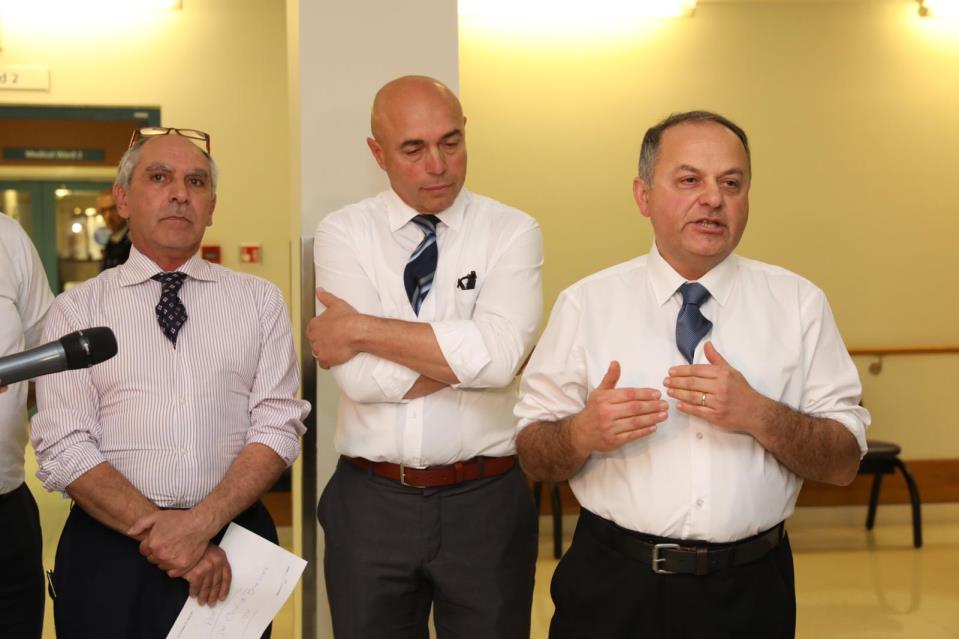Charles Mallia Azzopardi, who is managing the Coronavirus procedures at the Infectious Disease Unit (IDU), told The Malta Independent that he firmly believes that there was nothing more that could have been done to prepare Malta for the Coronivirus pandemic that has taken over the world since the end of last year.
Nearly two weeks ago, Malta experienced its first case of a ‘COVID-19 positive’ patient and since then the number has been on the increase, with 53 cases being confirmed as of Thursday. Thankfully, two have already recovered but the others are still being kept in isolation at Mater Dei, within the IDU.
But what exactly is going on inside this unit? How is it equipped for ‘COVID-19 positive’ patients and who are the people behind these operations?
Mallia Azzopardi said that the Hospital Incident Committee has been hard at work, holding meetings even over the weekend to try to plan for what might be coming towards us.
This includes logistics like dividing the hospital into two parts; one side related to COVID-19 and the other part for cases which are unrelated, and the same is done with regards to the amount of beds available. There is also training of healthcare workers – be they doctors, nurses or cleaners – and making sure that there is clear and efficient communication across all groups.
Mallia Azzopardi explained that while the IDU is receiving all ‘COVID positive’ patients until now, other wards have been receiving those patients who were quarantined at home but had to come to the hospital for some reason or other. This helps keep them isolated during the procedures they need to undergo.

There is also a part of the hospital dedicated to patients coming through casualty which are suspected of having COVID-19. They are placed there until all the results from their swab test is back and once they come out, healthcare workers decide whether to submit that patient to the IDU or to another ward.
He added that when one ward is half full, the other room in line to be used for ‘COVID patients’ will be emptied completely and preparations will start on it. In the meantime, nurses would have observed other nurses work with such patients in order to prepare themselves for duty.
Asked about the number of staff that is manning the IDU with every shift, Mallia Azzopardi said that there are about three consultant and eight senior staff that are working round the clock and manning the unit.
With regards to the treatment of the current ‘COVID positive’ patients, he explained that the staff basically makes sure that we control their temperature and other symptoms such as coughs.
“Some of them needed some intravenous fluid but other than that we ensure that they keep healthy. In so doing we are isolating them from other patients in the hospital and once they are stable than one would be planning to discharge him home,” he said.
He explained that no specific medication is being given as of yet as medications are still being studied but these will only be given to people who are severely unwell. "It is planned that if we have severely unwell patients most probably, we will be using Kaletra (used to treat HIV) with Chloroquine (used to treat Malaria)."

Additionally, the IDU is in constant contact with the Intensive Therapy Unit (ITU) which has made major preparations to house severely unwell patients, even though no such cases have been reported yet.
Answering to this newsroom’s query on what steps people should take to prevent the virus from being severely damaging or worse, fatal, Mallia Azzopardi emphasised the importance of maintaining a healthy respiratory system.
“Smokers obviously will have a decrease in lung reserve and if they had to have an infection, that will have an impact on their already decreased lung function – so stopping smoking is beneficial.”
He added that a healthy lifestyle will also protect people from infection to a certain degree because they can fight it off more efficiently. “Making sure you are not overweight will definitely help because if one’s body is obese the lung capacity is also limited.”
With regards to genetic condition like diabetes, hypertension and cardiovascular disease, he said that such instances are harder to control. However, while such individuals are more prone to face complications, the virus will still mostly affect the respiratory system. “So, the healthier one's lungs are the better."
The Malta Independent also asked about what measures are being taken by health authorities to stay ahead of the virus.
“The threshold for swabbing people is extremely low. So, first and foremost, our aim is to identify each and every person within the community who is ‘COVID positive’,” Mallia Azzopardi said. “Knowing about these individuals will help us isolate them and this in itself will control the transmission of infection.”
When it comes to what happens in Mater Dei, they focus on scanning anyone coming to the hospital in various ways to make sure that they are not ‘COVID positive’ and reduces any chances of admitting patients to wards which are not equipped.

“In the meantime, we are increasing our capacity as much as possible to plan for the predicted increase in the influx of patients in Mater Dei.”
He believes that “from looking at the situation in countries around us, one would immediately realise that the number of admissions to hospital institutions will definitely go up. Hopefully, it will not be as steep, but we are trying our best to plan for this situation.”
Having said this, he expressed concern over the fact that, despite having increased Mater Dei’s capacities exponentially, it will still be hit with a wave of admissions which would make it difficult for those working in the hospital to give the highest standard of care.
This not only comes from comes from a lack of human resources but also material ones. "It's not just about going out there and buying more ventilators, you will not find them on the market. Considering that we started planning for this a relatively long time ago, we still could not access all this hardware we would have wanted to have," he explained.
Nonetheless, Mallia Azzopardi remains optimistic as he is convinced that nothing more could have been done in this situation – “I can sleep easier at night knowing that this is a fact.”
He saluted all healthcare workers who put aside their anxieties about this pandemic and came together with full cooperation. “I am hopeful that if we all work together, we will be able to overcome it or, at least, make the pain easier for all of us.”